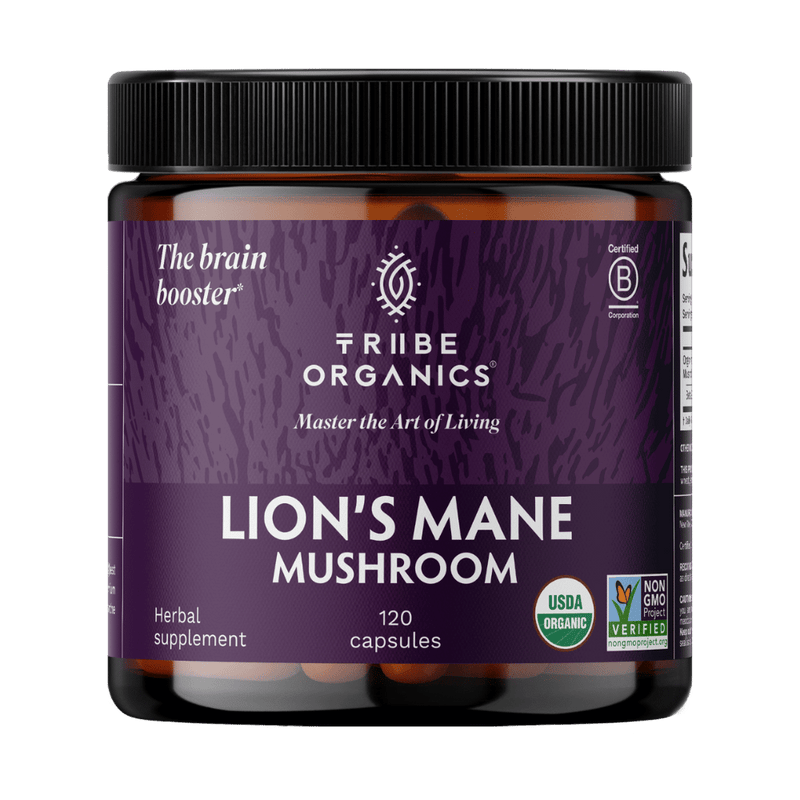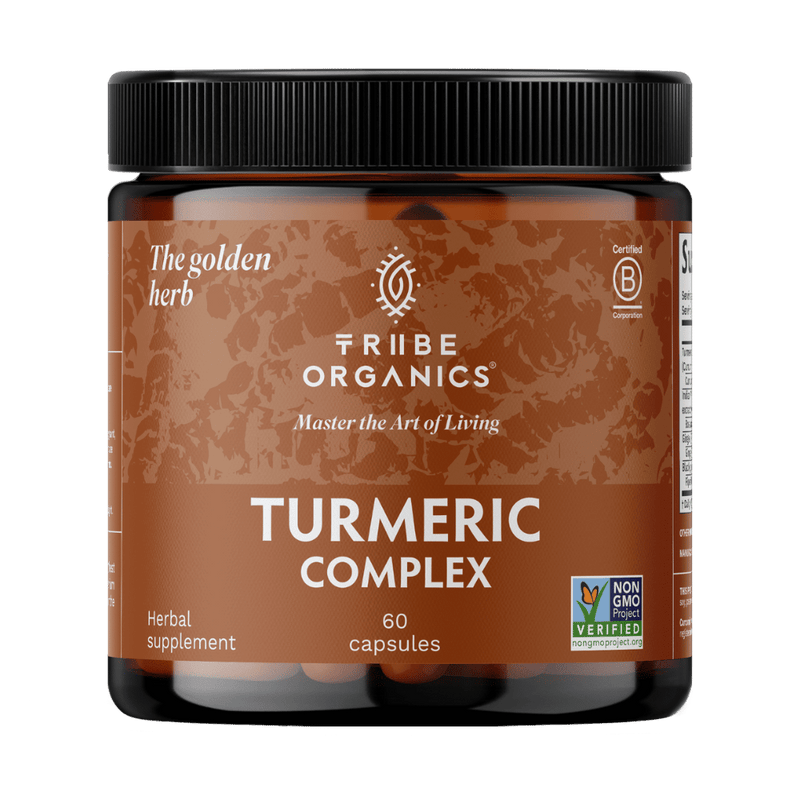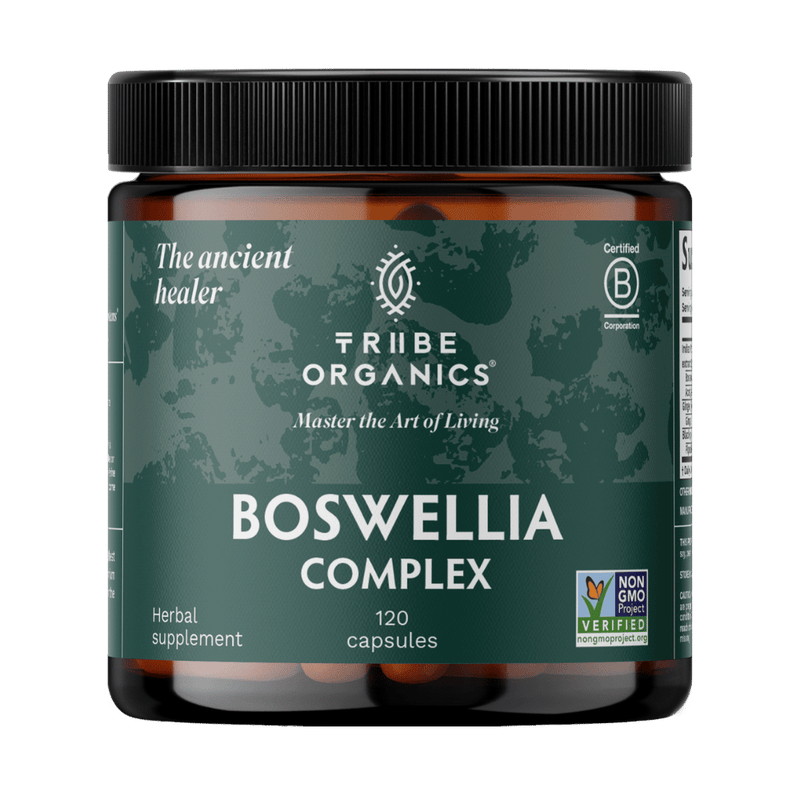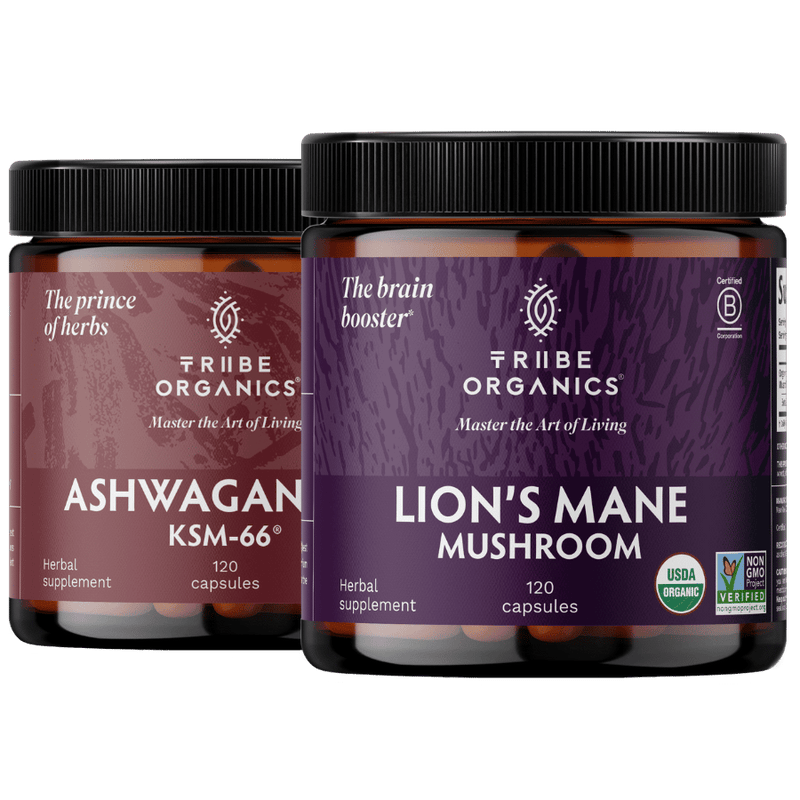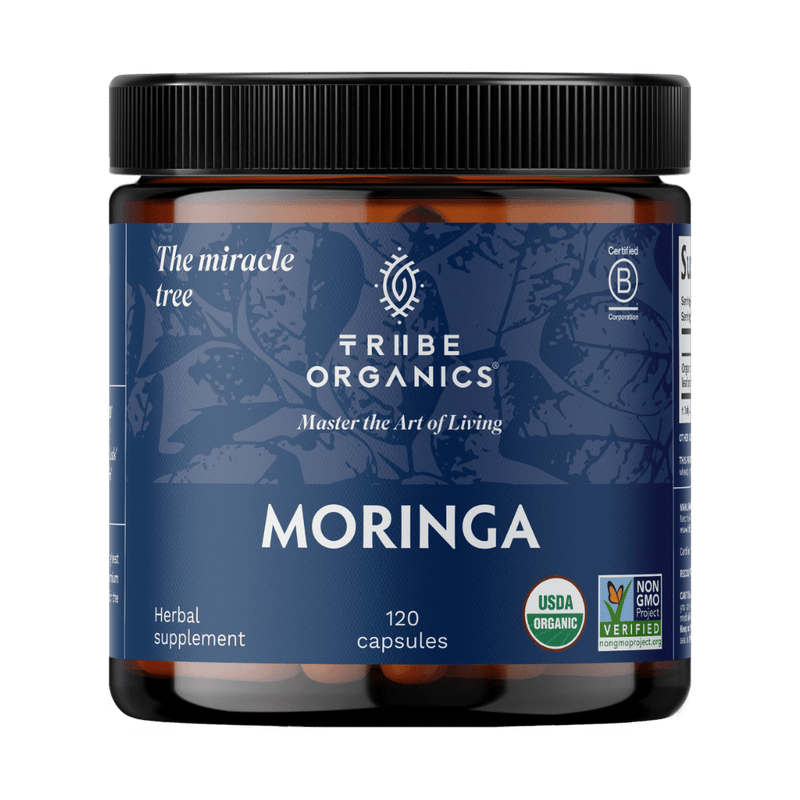Key Takeaways
- Ashwagandha may help normalize thyroid hormone levels (T3, T4) and reduce TSH in people with subclinical hypothyroidism
- The herb works by reducing cortisol levels and supporting the hypothalamic-pituitary-thyroid axis for better hormonal balance
- Clinical studies show 600mg daily of ashwagandha root extract can improve thyroid function within 8 weeks
- People with hyperthyroidism should avoid ashwagandha as it may worsen symptoms by further increasing thyroid hormones
- Ashwagandha supports overall hormonal balance by modulating stress hormones, reproductive hormones, and adrenal function
Ancient wisdom meets modern science in the remarkable story of ashwagandha’s impact on thyroid function and hormonal balance. This revered adaptogenic herb from traditional Ayurvedic medicine has captured the attention of researchers worldwide for its potential to support thyroid health and optimize endocrine function. As millions struggle with thyroid disorders and hormonal imbalances, understanding how ashwagandha withania somnifera may offer natural support becomes increasingly valuable for those seeking evidence-based complementary medicine approaches.
The connection between stress, thyroid function, and overall hormonal balance represents one of the most compelling areas of modern integrative medicine research. Clinical trials have begun to validate what traditional medicine practitioners have known for centuries: that ashwagandha possesses numerous health promoting properties that extend far beyond simple stress reduction. For health-conscious individuals seeking to support thyroid function and achieve optimal hormonal balance, ashwagandha presents a promising natural remedy backed by emerging scientific evidence.
What is Ashwagandha and How Does it Affect Thyroid Function
Ashwagandha, scientifically known as withania somnifera and commonly referred to as indian ginseng or winter cherry, is a perennial shrub native to India, North Africa, and parts of the Middle East. This powerful adaptogenic herb has been treasured in ayurvedic medicine for over 3,000 years, traditionally used to enhance vitality, support the body’s ability to manage stress, and promote overall endocrine system balance.
The therapeutic power of ashwagandha lies in its unique bioactive compounds, particularly withanolides, alkaloids, and saponins. These compounds work synergistically to influence multiple physiological pathways, including those that directly impact thyroid hormone production and regulation. The ashwagandha root extract contains the highest concentration of these active compounds, which is why most clinical research focuses on standardized root preparations.

Research indicates that ashwagandha affects thyroid function through several key mechanisms. The herb appears to stimulate the thyroid gland directly, promoting increased synthesis and secretion of thyroid hormones. Additionally, ashwagandha’s ability to modulate cortisol levels plays a crucial role, as chronic stress and elevated cortisol can suppress thyroid hormone production. By helping the body manage stress more effectively, ashwagandha creates a more favorable environment for optimal thyroid function.
The adaptogenic properties of ashwagandha enable it to support healthy thyroid tissue while potentially protecting against oxidative stress that can damage thyroid cells. This dual action of stimulation and protection makes ashwagandha particularly valuable for individuals with subclinical hypothyroidism or those experiencing stress-related thyroid dysfunction.
Understanding Thyroid Function and Hormonal Balance
The thyroid gland, a butterfly-shaped organ located in the front of the neck, serves as the body’s metabolic control center. This vital endocrine gland produces thyroid hormones that regulate virtually every aspect of metabolism, energy production, body temperature, and cellular function throughout the body. Understanding how this complex system works is essential for appreciating how ashwagandha can support thyroid health.
The primary thyroid hormones include thyroxine (T4) and triiodothyronine (T3), with T3 being the more metabolically active form. The pituitary gland releases thyroid stimulating hormone (TSH), which signals the thyroid gland to produce sufficient hormones. This intricate feedback system, known as the hypothalamic-pituitary-thyroid axis, maintains delicate hormonal balance under normal circumstances.
When thyroid function becomes disrupted, the consequences extend far beyond the thyroid gland itself. Common thyroid disorders include:
|
Condition |
Characteristics |
Symptoms |
|
Hypothyroidism |
Underactive thyroid, insufficient hormone production |
Fatigue, weight gain, cold intolerance, depression |
|
Hyperthyroidism |
Overactive thyroid, excessive hormone production |
Rapid heartbeat, weight loss, anxiety, heat intolerance |
|
Subclinical Hypothyroidism |
Elevated TSH with normal T3/T4 levels |
Mild symptoms, often overlooked |
The relationship between stress hormones and thyroid function represents a critical connection that many people overlook. Chronic stress elevates cortisol levels, which can suppress thyroid hormone production and interfere with the conversion of T4 to the more active T3 form. This stress-thyroid connection explains why many individuals with thyroid dysfunction also struggle with symptoms related to adrenal fatigue and hormonal imbalance.

Thyroid disorders affect millions worldwide, with subclinical hypothyroidism being particularly common among women and older adults. The immune system also plays a significant role in thyroid health, as autoimmune conditions like Hashimoto’s thyroiditis and Graves’ disease represent leading causes of thyroid dysfunction. These autoimmune diseases occur when the immune system mistakenly attacks healthy thyroid tissue, disrupting normal hormone production.
Scientific Evidence: Ashwagandha’s Impact on Thyroid Health
The most compelling evidence for ashwagandha’s effect on thyroid function comes from a landmark double blind randomized placebo controlled study published in respected medical literature. This eight-week randomized placebo controlled trial involved 50 subclinical hypothyroid patients who received 600mg of standardized ashwagandha root extract daily.
The results were remarkable and statistically significant compared to placebo:
- TSH levels decreased by 17.5%
- T3 levels increased by 41.5%
- T4 levels increased by 19.6%
These improvements in thyroid hormone levels occurred within just eight weeks of supplementation, demonstrating ashwagandha’s relatively rapid onset of action for supporting thyroid health. The study used a standardized extract containing 35% withanolides, establishing this concentration as the gold standard for therapeutic effects.
Additional clinical trials have provided further evidence of ashwagandha’s thyroid-supporting properties. A smaller study involving individuals with bipolar disorder noted significant increases in T4 levels among participants receiving ashwagandha supplementation. While this observation was made in a different population, it supports the herb’s consistent effect on thyroid hormone production.

Animal studies have provided valuable insights into ashwagandha’s mechanisms of action on thyroid function. A 2019 rodent study demonstrated that ashwagandha supplementation improved thyroid hormone profiles and exhibited anti-hypothyroid properties. These studies suggest that ashwagandha may help protect thyroid tissue from damage while stimulating hormone synthesis.
Comparative research examining ashwagandha versus synthetic thyroid hormones like levothyroxine reveals important differences in their approaches to thyroid support. While pharmaceutical thyroid medications provide direct hormone replacement, ashwagandha works by supporting the thyroid gland’s natural ability to produce sufficient hormones. This fundamental difference makes ashwagandha particularly valuable for individuals with mild thyroid dysfunction who may not yet require prescription thyroid medications.
Mechanisms of Action on Thyroid Function
Understanding how ashwagandha influences thyroid function at the cellular level provides insight into its therapeutic potential. The herb appears to work through multiple complementary pathways that collectively support optimal thyroid hormone levels.
The primary mechanism involves direct stimulation of thyroid hormone synthesis and secretion. Ashwagandha’s bioactive compounds appear to enhance the thyroid gland’s responsiveness to thyroid stimulating hormone tsh, potentially increasing the efficiency of hormone production. This stimulatory effect helps individuals with underactive thyroid function achieve more normal hormone levels.
Cortisol reduction represents another crucial mechanism through which ashwagandha supports thyroid health. Chronic stress and elevated cortisol levels can significantly suppress thyroid function through multiple pathways. By helping to normalize cortisol levels, ashwagandha removes a major impediment to healthy thyroid hormone production and metabolism.
The herb’s influence on the hypothalamic-pituitary-thyroid axis regulation extends beyond simple hormone stimulation. Ashwagandha appears to help optimize the communication between the brain and thyroid gland, promoting more efficient feedback mechanisms that maintain hormonal balance. This systemic approach to thyroid support distinguishes ashwagandha from more targeted interventions.
Antioxidant protection represents an often-overlooked benefit of ashwagandha for thyroid health. The thyroid gland is particularly susceptible to oxidative stress, which can damage thyroid cells and impair hormone production. Ashwagandha’s potent antioxidant properties help protect healthy thyroid tissue from this damage, supporting long-term thyroid function.
Ashwagandha for Overall Hormonal Balance
While ashwagandha’s effects on thyroid function garner significant attention, the herb’s impact on overall hormonal balance extends far beyond the thyroid gland. The endocrine system functions as an interconnected network, and ashwagandha’s adaptogenic properties support multiple hormonal pathways simultaneously.
The hypothalamic-pituitary-adrenal (HPA) axis represents one of the most important systems influenced by ashwagandha supplementation. This stress response system controls cortisol production and plays a crucial role in how the body responds to physical and psychological stressors. Clinical studies consistently demonstrate ashwagandha’s ability to reduce elevated cortisol levels, with some research showing reductions of up to 30% in chronically stressed individuals.

The cascading effects of cortisol reduction extend throughout the endocrine system. Lower cortisol levels support better insulin sensitivity, improved blood sugar regulation, and enhanced reproductive hormone function. This interconnected improvement explains why many individuals experience multiple health benefits when using ashwagandha for stress reduction and hormonal support.
Adrenal glands function receives particular support from ashwagandha supplementation. These small but vital glands produce numerous hormones beyond cortisol, including DHEA, aldosterone, and small amounts of reproductive hormones. Chronic stress can lead to adrenal fatigue, a condition where these glands struggle to meet the body’s hormonal demands. Ashwagandha helps support adrenal recovery and optimal function.
The herb’s influence on insulin sensitivity and blood sugar regulation represents an emerging area of research with significant implications for metabolic health. Preliminary studies suggest that ashwagandha may help improve glucose metabolism and insulin function, though more research is needed to fully understand these effects.
Reproductive Hormone Support
Ashwagandha’s impact on reproductive hormones has been extensively studied, particularly in relation to male fertility and testosterone levels. Multiple clinical trials have demonstrated significant improvements in male reproductive health with ashwagandha supplementation.
In men, ashwagandha supplementation has been shown to:
- Increase testosterone levels by 10-22% in various studies
- Improve sperm quality and motility
- Enhance luteinizing hormone (LH) production
- Support overall male fertility parameters
These improvements appear to result from ashwagandha’s ability to reduce stress-related suppression of the reproductive axis while supporting optimal pituitary gland function. The herb’s influence on sleep quality and overall vitality also contributes to improved reproductive health.
For women, research on ashwagandha’s effects on reproductive hormones remains more limited but shows promising results. Some studies suggest that ashwagandha may help regulate menstrual cycles and support overall reproductive health, though more research is needed to establish specific recommendations for female hormonal support.
The herb’s interaction with GABA receptors in the brain may influence the release of gonadotropin-releasing hormone (GnRH), which controls the production of reproductive hormones. This neurological pathway represents another mechanism through which ashwagandha supports overall hormonal balance.
Optimal Dosage and Administration Guidelines
Determining the appropriate ashwagandha dosage for thyroid function and hormonal balance requires consideration of multiple factors, including the specific health goals, individual sensitivity, and the form of ashwagandha being used. Clinical research provides valuable guidance for establishing effective dosing protocols.
The most extensively studied dose for thyroid support is 600mg daily of standardized ashwagandha root extract, typically standardized to contain 35% withanolides. This dosage was used in the landmark study showing significant improvements in thyroid hormone levels among subclinical hypothyroid patients. For general stress reduction and hormonal support, effective doses range from 300-600mg daily.
Different forms of ashwagandha offer varying concentrations of active compounds:
|
Form |
Typical Concentration |
Recommended Daily Dose |
|
Standardized Extract (35% withanolides) |
High potency |
300-600mg |
|
Ashwagandha Root Powder |
Lower concentration |
1-3 grams |
|
Ashwagandha Tea |
Mild potency |
1-2 cups daily |
The importance of standardization to 35% withanolides cannot be overstated for achieving consistent therapeutic effects. Many ashwagandha supplements on the market contain significantly lower concentrations of active compounds, which may not provide the same benefits demonstrated in clinical research.
Timing recommendations for ashwagandha supplementation vary depending on individual response and intended effects. Many people find that taking ashwagandha in the evening supports better sleep quality, while others prefer morning dosing to support energy and stress resilience throughout the day. The herb can be taken with or without food, though some individuals experience better tolerance when taken with meals.
For thyroid function improvements, most individuals begin to notice changes in energy levels and stress response within 2-4 weeks of consistent supplementation. However, the full beneficial effects on thyroid hormone levels typically require 6-8 weeks of regular use, as demonstrated in clinical trials.
Duration of supplementation for optimal results appears to be highly individual. While short-term use can provide immediate stress reduction benefits, longer-term supplementation may be necessary for sustained improvements in thyroid function and hormonal balance. Many practitioners recommend using ashwagandha cyclically, with periods of use followed by breaks to maintain sensitivity to its effects.
Safety Profile and Potential Side Effects
Ashwagandha enjoys a strong safety profile based on both traditional use and modern clinical research. The herb has received Generally Recognized as Safe (GRAS) status from regulatory authorities, and most individuals tolerate ashwagandha supplementation well when used at recommended dosages.
Common mild side effects are relatively rare but may include:
- Digestive upset or nausea (especially when taken on an empty stomach)
- Drowsiness or sedation (particularly with higher doses or evening use)
- Mild headaches during the initial adjustment period
- Skin rash in sensitive individuals
These side effects are typically mild and often resolve as the body adjusts to supplementation. Taking ashwagandha with food can help minimize digestive discomfort, while adjusting the timing or dose can address issues with drowsiness.
More serious concerns have emerged regarding potential ashwagandha toxicity, particularly related to liver injury. Several case reports have documented hepatotoxicity in individuals using ashwagandha supplements, though these cases remain rare and often involve products with questionable quality or purity. The risk of liver injury appears to be higher with:
- Unregulated or contaminated products
- Excessive dosages beyond recommended amounts
- Combination with other potentially hepatotoxic substances
- Underlying liver conditions or concurrent medications
Quality control represents a significant concern in the dietary supplements industry, and ashwagandha products are no exception. Third-party testing for purity, potency, and contaminants is essential for ensuring safety and efficacy. Consumers should choose ashwagandha supplements from reputable manufacturers that provide certificates of analysis and follow good manufacturing practices.
Long-term safety data for ashwagandha supplementation remains limited, as most clinical studies have evaluated use for 8-12 weeks. While traditional use suggests long-term safety, individuals planning extended supplementation should work with a healthcare provider to monitor for any adverse effects and ensure appropriate use.
Important Contraindications and Drug Interactions
Understanding when to avoid ashwagandha is crucial for safe and effective use. Several specific contraindications and potential drug interactions require careful consideration before beginning supplementation.
The most critical contraindication involves individuals with hyperthyroidism or overactive thyroid. Since ashwagandha can stimulate thyroid hormone production, it may exacerbate hyperthyroid conditions and potentially trigger thyrotoxicosis—a dangerous condition characterized by extremely high thyroid hormone levels. Symptoms of thyrotoxicosis include rapid heartbeat, high blood pressure, extreme anxiety, and potentially life-threatening cardiac complications.
Interactions with thyroid medications require particular attention and medical supervision. Ashwagandha may affect the absorption or effectiveness of synthetic thyroid hormones like levothyroxine, methimazole, and propylthiouracil. Individuals taking these thyroid medications should work closely with their healthcare provider to monitor thyroid hormone levels and adjust dosages as needed.
Other significant drug interactions include:
|
Medication Category |
Potential Interaction |
Recommendation |
|
Blood pressure medications |
May enhance hypotensive effects |
Monitor blood pressure closely |
|
Diabetes medications |
May lower blood sugar excessively |
Monitor glucose levels regularly |
|
Immunosuppressive drugs |
May counteract immunosuppression |
Avoid without medical supervision |
|
Sedatives and sleep aids |
May increase drowsiness |
Use with caution, reduce doses if needed |
Autoimmune thyroid conditions such as Hashimoto’s thyroiditis and Graves’ disease require special consideration. While some individuals with these autoimmune diseases may benefit from ashwagandha’s stress-reducing effects, the herb’s potential immune system stimulation could theoretically worsen autoimmune activity. People with autoimmune conditions should consult with their healthcare professional before using ashwagandha.
The interaction between ashwagandha and certain medications extends beyond direct pharmacological effects. The herb may influence liver enzyme activity, potentially affecting how the body metabolizes various drugs. This is particularly relevant for individuals taking medications with narrow therapeutic windows or those requiring precise dosing.
Special Populations to Avoid Ashwagandha
Certain populations should exercise particular caution or avoid ashwagandha entirely due to increased risk of adverse effects or lack of safety data.
Pregnant and nursing women should avoid ashwagandha supplementation due to potential abortifacient effects documented in traditional literature and animal studies. The herb may stimulate uterine contractions and could potentially affect fetal development or nursing infants. Alternative stress management approaches are recommended during pregnancy and breastfeeding.
Individuals scheduled for surgery should discontinue ashwagandha at least two weeks prior to their procedure. The herb’s effects on blood pressure, blood sugar, and central nervous system function could interfere with anesthesia or complicate surgical recovery. It’s essential to inform surgical teams about any herbal supplements being used.
People with hormone sensitive prostate cancer or other hormone-dependent cancers should avoid ashwagandha due to its potential effects on testosterone levels and hormonal balance. While research in this area is limited, the theoretical risk warrants caution in individuals with hormone-sensitive malignancies.
Those with underlying health conditions affecting liver function, kidney disease, or neurological disorders should consult with their health care practitioner before using ashwagandha. These conditions may increase the risk of adverse effects or complicate the herb’s metabolism and elimination from the body.
Individuals taking multiple medications or those with complex medical histories should work with their healthcare provider to evaluate potential interactions and determine whether ashwagandha is appropriate for their specific situation.
Frequently Asked Questions
Shop best sellers
Explore our collection of favorite items that have gained popularity for their quality and satisfaction.



